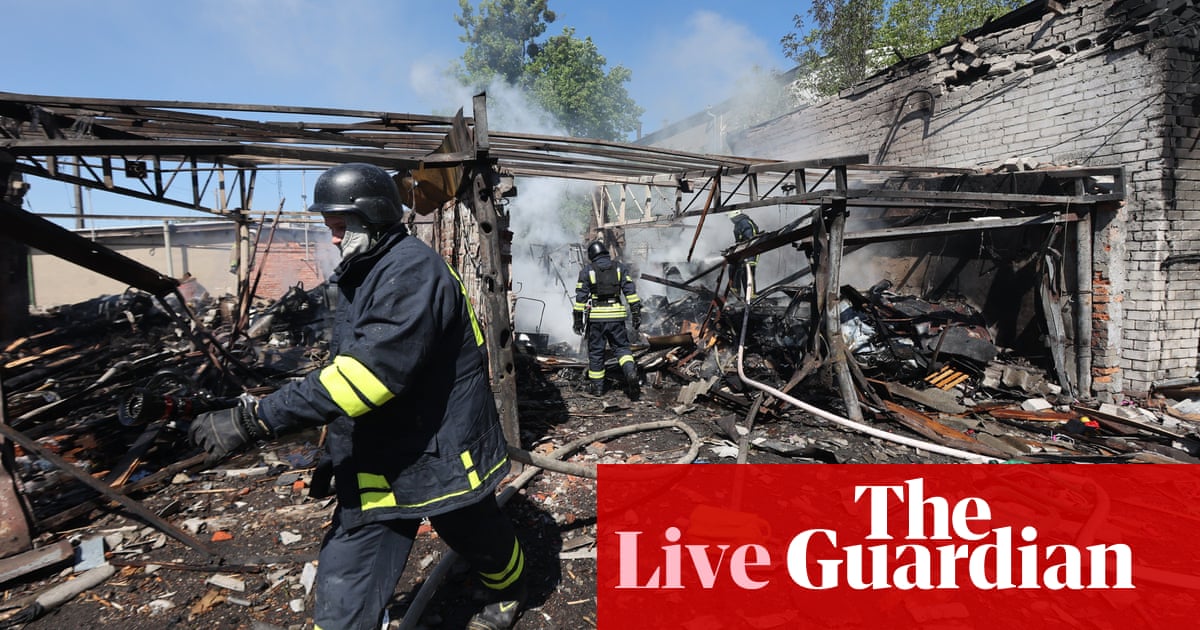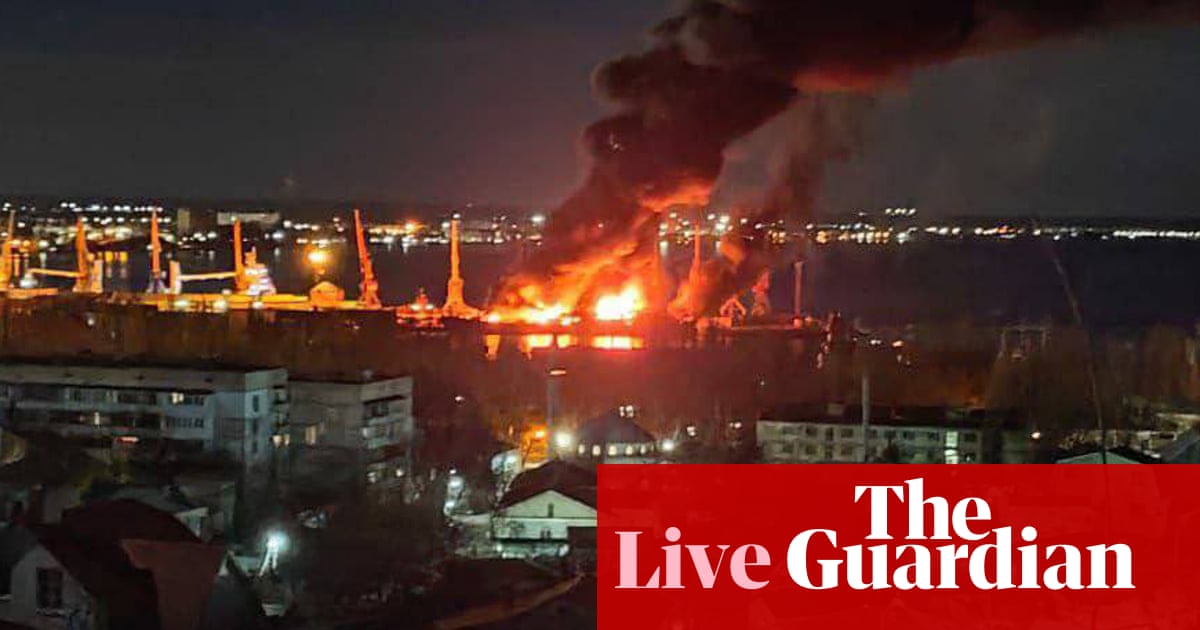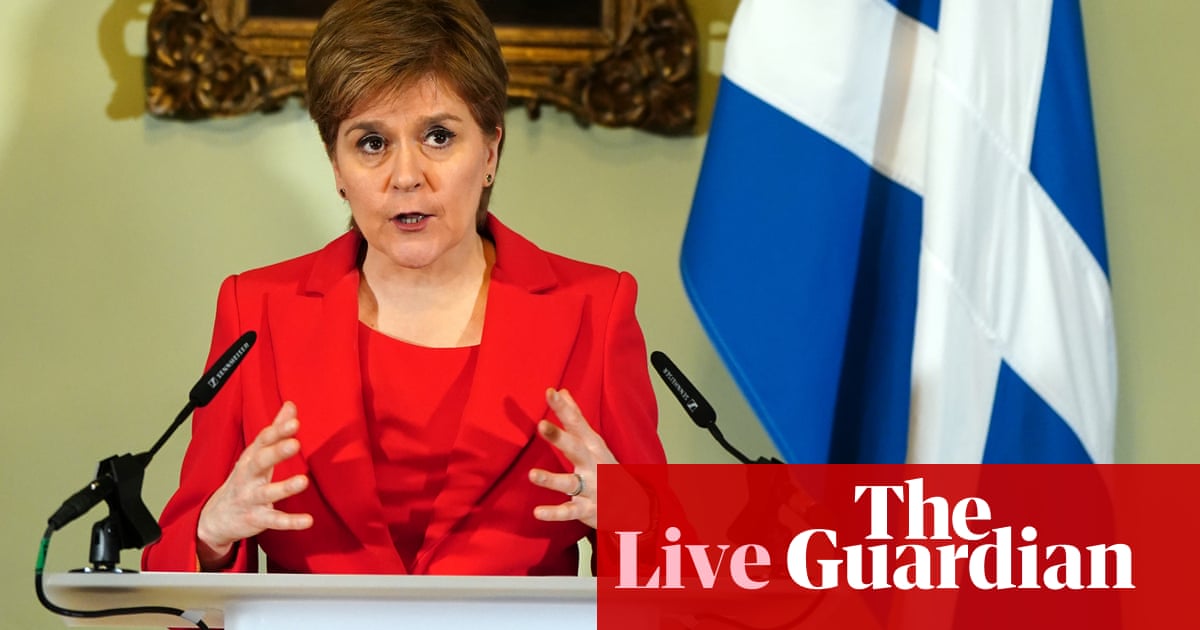
Moscow stock market slides on second day after reopening
The Russian stock market fell back today, wiping out much of Thursday’s rally when the exchange reopened for the first time in almost a month.
The Moex share index slid by 3.66% today, with every sector in the red, having gained 4.4% yesterday.
Limited stock trading resumed yesterday with several restrictions to prop up shares, including a ban on short-selling, and on foreign investors selling stocks. That helped to spark a rally yesterday, when oil and commodity stocks jumped.
Analysts have pointed out that these curbs meant Moscow’s market wasn’t operating properly, while the US dubbed it a “Potemkin market opening”.
But despite these measures, airline Aeroflot shed another 18% today, on top of Thursday’s 16% drop. Sanctions have barred its jets from EU and UK airspace.
Gas giant Gazprom fell 12%, after the US and EC agreed a deal to cut Europe’s dependency on Russian gas.
Steel giant Severstal fell 9%, with reports that sanctions were holding up a loan payment to ite creditors, putting it on the verge of default.
Before Thursday, stocks had not traded on Moscow’s exchange since February 25, the day after Putin sent thousands of troops into Ukraine.
The move prompted Western sanctions aimed at isolating Russia economically, which are driving the country into a deep recession.
The rouble-denominated Moex is now down 34% so far this year, having plunged when the invasion began in February before trading was suspended. In dollar terms, it’s almost halved.
Dmitry Polevoy, an analyst at Locko-Invest in Moscow, told Bloomberg:
“Yesterday, the main theme was hot money searching for tactical buying.
Today, we see some selling plus more activity from people who stayed aside yesterday seem to be driving the move.”
“Price-discovery will take time as it is hard to correctly assess new fair prices. The sanctions story is still open-ended.”
With the slump in the rouble driving up prices, some investors may be looking to stocks as a hedge against inflation.
Back on the cost of living crisis, UK farmers are warning that milk production is starting to fall as sharp rises in cost of fuel, feed, and fertiliser outstrip increases in farm-gate prices.
My colleague Zoe Wood reports:
“Something has to give and if the milk price doesn’t give, then the producers will,” says Oxfordshire dairy farmer David Christensen in a stark assessment of the peril his industry is facing as soaring costs push farm finances into the red.
Christensen, whose family business manages a herd of about 1,000 cows, says costs were already going up as a result of the upheaval caused by the pandemic and Brexit, but the war in Ukraine has “turbocharged inflation to levels the like of which I’ve never seen in 30 years of farming”.
He is a member of Arla, Britain’s largest dairy co-operative, which has sounded the alarm as the financial squeeze forces UK milk production to fall – a trend that could threaten future milk supplies.
Ash Amirahmadi, the managing director of Arla Foods UK, said producing fresh milk had for some time been delivering “little to no profitability for farmers” but the situation was now acute as the Ukraine crisis stoked farm cost inflation.
Rolls-Royce shares jumps in late trading
Shares in UK engineeering group Rolls-Royce surged in late trading in London, finishing 19% higher as the top FTSE 100 riser.
The late rally in Rolls-Royce shares came after the Betaville website, which covers deals news and gossip, reported speculation that the aerospace and defence group could soon be involved in a significant corporate transaction - such as a merger or even a takeover offer.
As Seeking Alpha explains:
Rolls-Royce spikes after a Betaville “uncooked alert” says the company may be involved in a “significant corporate transaction” that could include a merger or takeover deal.
According to the Betaville blog post, an unidentified suitor may be in the early stages of considering a combination with Rolls-Royce.
The post is billed as an ‘uncooked alert’, which is defined as “Market gossip as Betaville receives it”.
It seems to have been the catalyst for the share price jump into the close of trading.
A Rolls-Royce spokesperson tells us: “we do not comment on rumour and speculation”.
The FTSE 100 ended 16 points higher, up 0.2% at 7483 points.
Market close
European stock markets have ended a choppy week with some modest gains.
The pan-European Stoxx 600 closed 0.1% higher, but was 0.2% lower for the week.
Germany’s DAX gained 0.2%, and Italy’s FISE MIB rose 0.6%, with the US-EU deal to cut dependency on Russian gas providing some relief.
Craig Erlam, senior market analyst at OANDA, says the markets are “broadly in consolidation” at present.
We appear to have hit a point in which the initial shock of the Ukraine invasion has passed and markets have corrected back to a point where the economic risks are deemed to be priced in. In the absence of any significant developments, equity markets have come to a relative standstill and could remain that way until we see some progress.
Volatility remains in the commodity space which is contributing to the day-to-day fluctuations in equity markets. Higher commodity prices mean a further squeeze on the global economy this year and more inflation at a time when central banks are already accelerating tightening plans after falling behind the curve.
Oil has reversed its earlier losses after an attack on one of Saudi Arabia’s state-run oil company Aramco’s storage facilities.
AP explains:
A raging fire erupted Friday at an oil depot in Jiddah ahead of a Formula One race in the Saudi city. Yemen’s Houthi rebels claimed it was an attack by the group among a barrage of others.
While Saudi Arabia and its state-run oil behemoth Saudi Aramco did not immediately acknowledge the blaze, it was centered on the same fuel depot that the Houthis had attacked in recent days.
Brent crude is now up 1% at $120 per barrel, having dipped towards $115 earlier.
Jewellery group Tiffany’s has said it will stop buying new diamonds mined in Russia.
The move follows pressure on the jewellery industry to cut ties with Russia following the Ukraine war.
But, as Bloomberg’s Jeannette Neumann, explains here, there are some caveats.
Moscow stock market slides on second day after reopening
The Russian stock market fell back today, wiping out much of Thursday’s rally when the exchange reopened for the first time in almost a month.
The Moex share index slid by 3.66% today, with every sector in the red, having gained 4.4% yesterday.
Limited stock trading resumed yesterday with several restrictions to prop up shares, including a ban on short-selling, and on foreign investors selling stocks. That helped to spark a rally yesterday, when oil and commodity stocks jumped.
Analysts have pointed out that these curbs meant Moscow’s market wasn’t operating properly, while the US dubbed it a “Potemkin market opening”.
But despite these measures, airline Aeroflot shed another 18% today, on top of Thursday’s 16% drop. Sanctions have barred its jets from EU and UK airspace.
Gas giant Gazprom fell 12%, after the US and EC agreed a deal to cut Europe’s dependency on Russian gas.
Steel giant Severstal fell 9%, with reports that sanctions were holding up a loan payment to ite creditors, putting it on the verge of default.
Before Thursday, stocks had not traded on Moscow’s exchange since February 25, the day after Putin sent thousands of troops into Ukraine.
The move prompted Western sanctions aimed at isolating Russia economically, which are driving the country into a deep recession.
The rouble-denominated Moex is now down 34% so far this year, having plunged when the invasion began in February before trading was suspended. In dollar terms, it’s almost halved.
Dmitry Polevoy, an analyst at Locko-Invest in Moscow, told Bloomberg:
“Yesterday, the main theme was hot money searching for tactical buying.
Today, we see some selling plus more activity from people who stayed aside yesterday seem to be driving the move.”
“Price-discovery will take time as it is hard to correctly assess new fair prices. The sanctions story is still open-ended.”
With the slump in the rouble driving up prices, some investors may be looking to stocks as a hedge against inflation.
Inflation worries drive US consumer confidence to 11-year low
US consumer confidence has fallen to its lowest level in 11 years, as worries about inflation and the Ukraine war mount.
The University of Michigan’s consumer sentiment report found that confidence declined in March due to falling real incomes, which recently accelerated as fuel prices rose sharply.
The index fell to 59.4 this month, down from 62.8 in February and 84.9 last March. That’s slightly worse than the preliminary estimate of 59.7 earlier this month.











